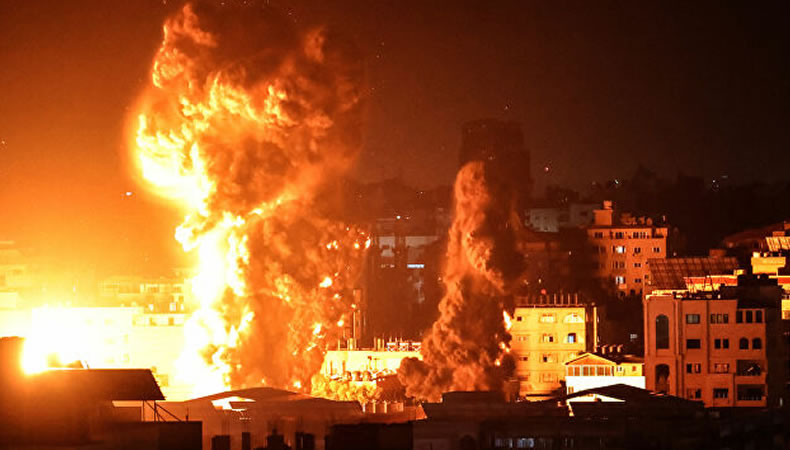Israel-Hamas: An Imminent World War III

There are fears that the ongoing escalation between Israel and Hamas could emerge into a full-blown World War III. With the Western countries already taken side with greater Israel, countries in the Middle East don’t want to be dragged into a never-ending conflict.
Already mired in Yemen and Syria, Saudi Arabia and Iran are struggling not to be sucked into the Israel-Hamas war. But Palestine is at the core, and Muslim nations hold this conflicted region dear. Palestinians have been suffering for the past 70 year, families have been torn apart, children and women killed, youth shot and killed, displaced and denied their basic rights at the hands of Israel.
After Hamas Operation Al-Aqsa Flood, Israel took up self-defense and went on a revenge spree – collective punishment for Palestinians. Regional watchers say Israel had it coming given its recent actions in Gaza and West Bank, as well as the sacred Al-Aqsa mosque.
Israel-Hamas War Comes After De-escalation
Dr Sanam Vakil, director MENA Programme at Chatham House, says the current Israel-Hamas war follows a prolonged period of regional-led de-escalation and reconciliation efforts. She pointed out that countries, including Israel, since 2019 have been increasingly willing to find pragmatic, workable compromises based on shared interests for a new Middle East.
“Progress has not been complete, but the regional context for the Israel-Hamas war is very different from that of even 10 years ago.” Vakil believes now is the moment for regional players to collaborate on an effort to find new solutions to de-escalate the war.
This new war can be stated to be the severest possible test of regional cooperation. Valik said Middle Eastern countries should not step back from the challenge. “Since 2019 Middle Eastern countries have embarked on a prolonged period of realist regional diplomacy, driven by decreasing US engagement, geopolitical shifts stemming from the war in Ukraine, and a broader regional re-prioritization of domestic economic needs.”
There has been normalization of relations between Israel, Bahrain, and the UAE through the 2020 Abraham Accords, the end of the Qatar blockade in 2021 and a re-set of the Gulf-Turkish relations in 2023, as well as the restoration of Iranian-Saudi relations, thanks to China.
Keep Reading
Who is the Loser: Hamas Derailed Saudi-Israel Normalization
No Breakthrough in UN Security Council Meeting on Gaza Escalation
A Fragile Region and Now Israel-Hamas Escalation
But the Israel-Hamas escalation has shaken the already fragile Middle East. Israel says it doesn’t want Gaza or Palestine, then why does it continue to occupy and violate Palestinians human rights. Sam Menassa, the talk show host at MBN, believes Hamas objectives are also obscure – does it want to liberate the territory, empower the group at the expense of Palestinian Authority, or stem out the Saudi-Israeli normalization plans for good.
Because of regional threats and the shaky policies of global powers, regional actors began prioritizing their national interests and development in their respective countries. They have tried to contain or isolate regional conflicts, while seeking balanced international ties. And Iran is trying to emerge as a major player after normalizing ties with Saudi Arabia.
At the end of the day, the Israeli-Palestinian conflict must be resolved, once for all to prevent Hamas and similar groups from make the region more fragile.




